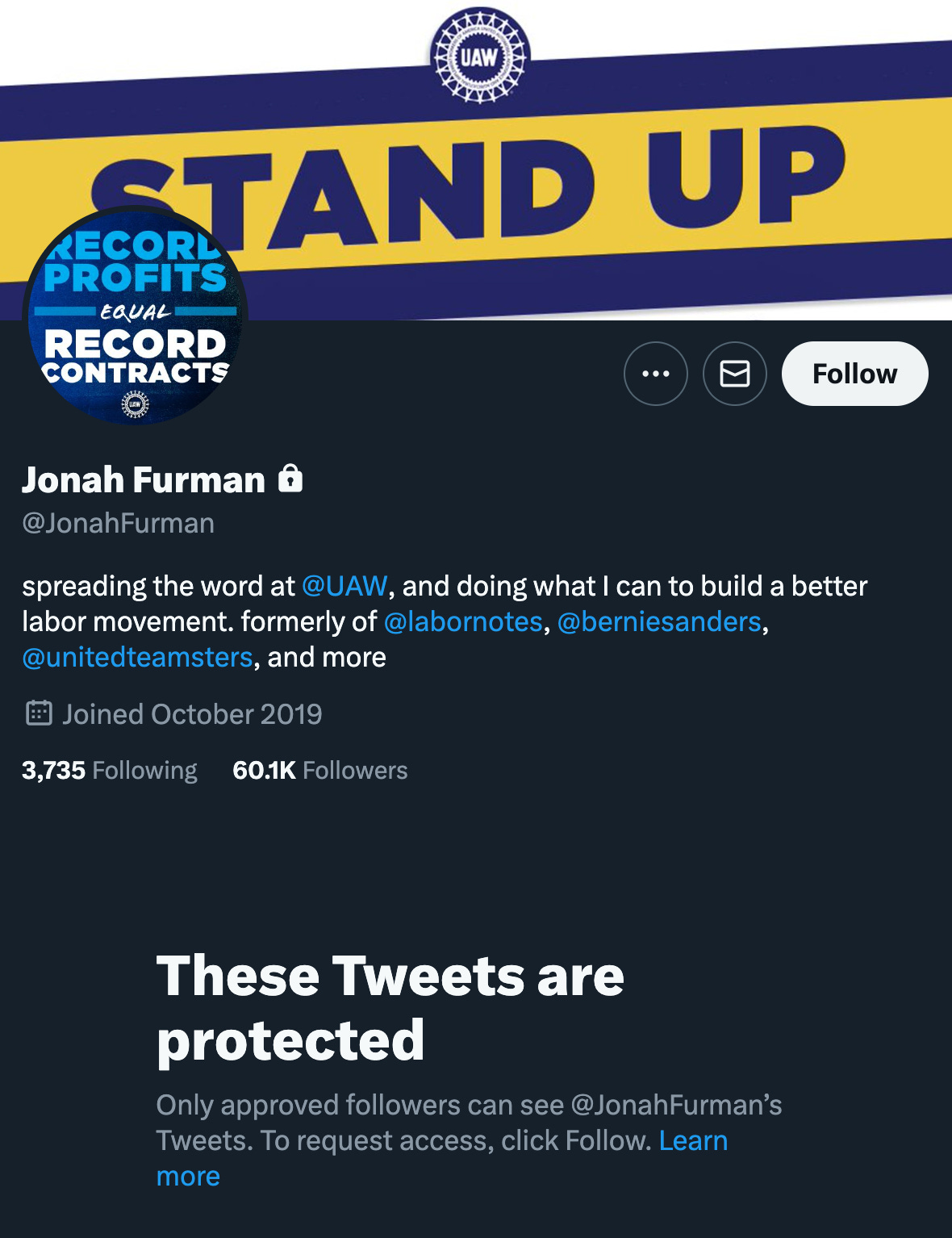BREAKING—Leaked UAW messages raise the question: Is the union bargaining in good faith?
Leaked messages from within the UAW's inner circle reveal that "union negotiators are using bargaining sessions to inflict ‘recurring reputations damage and operational chaos.’"

Good morning!
While there will be more on this throughout the day, this news broke late Thursday evening and is important enough to call to your attention to it, apart from the News Digest.
Leaked messages of UAW inner circle raise questions
With a United Auto Workers (UAW) strike against the Detroit Three automakers now going into its second week—with more plants expected to be added to the three already-striking plants later today—leaked text messages attributed to the UAW’s communications director Jonah Furman expose a strategy that “union negotiators are using bargaining sessions to inflict ‘recurring reputations damage and operational chaos’ on the Detroit automakers.”
Furman, according to Axios, “is a former reporter at Labor Notes, an advocacy nonprofit, who also worked as a national labor organizer for Bernie Sanders' 2020 presidential campaign.”
The contents of Furman’s leaked messages were posted late Thursday night by the Detroit News reveals that the UAW’s strategy appears to also be to break its 70-year old practice of ‘pattern bargaining.’
“And creating compression points of national attention for them to do the right thing is way different than just waiting for a month for the next offer. Plus, we’re breaking pattern and they’re bargaining against each other for the first time in 70 years,” Furman allegedly wrote.
“The fallout is likely to further undermine trust at the bargaining table,” Axios noted, making a deal even more elusive as the union prepares to expand its strike to more factories on Friday.”
By early Friday morning, Furman’s account on X (formerly Twitter) was locked from public viewing.
Good faith vs. Bad faith bargaining
Under the National Labor Relations Act, while neither party (an employer or a union) is required to agree with the other, just as an employer is required to bargain in “good faith,” so too is a union.
In fact, according to the National Labor Relations Board (NLRB), it is “an unfair labor practice for either party to refuse to bargain collectively with the other.”
Indeed, the NLRB even states [p. 28, in PDF]:
Section 8(b)(3)—Refusal to Bargain in Good Faith. Section 8(b)(3) makes it illegal for a labor organization to refuse to bargain in good faith with an employer about wages, hours, and other conditions of employment if it is the representative of that employer’s employees. This section imposes on labor organizations the same duty to bargain in good faith that is imposed on employers by Section 8(a)(5).
According to the Detroit News, the “messages are making the rounds of senior management inside the three automakers, according to three sources familiar with the situation, eliciting predictable outrage and accusations of bad-faith bargaining.”
It is unknown whether any of the Detroit auto makers will file unfair labor practice charges against the UAW. However, it would not be surprising if they do.
Whether or not the leaked messages alter the UAW’s expected announcement of additional plants to strike also will not be known until later this morning.
Stay tuned.





This is fake news. There is nothing in these messages that could be construed as demonstrating “bad faith” bargaining. The corporations are just not used to playing hardball.